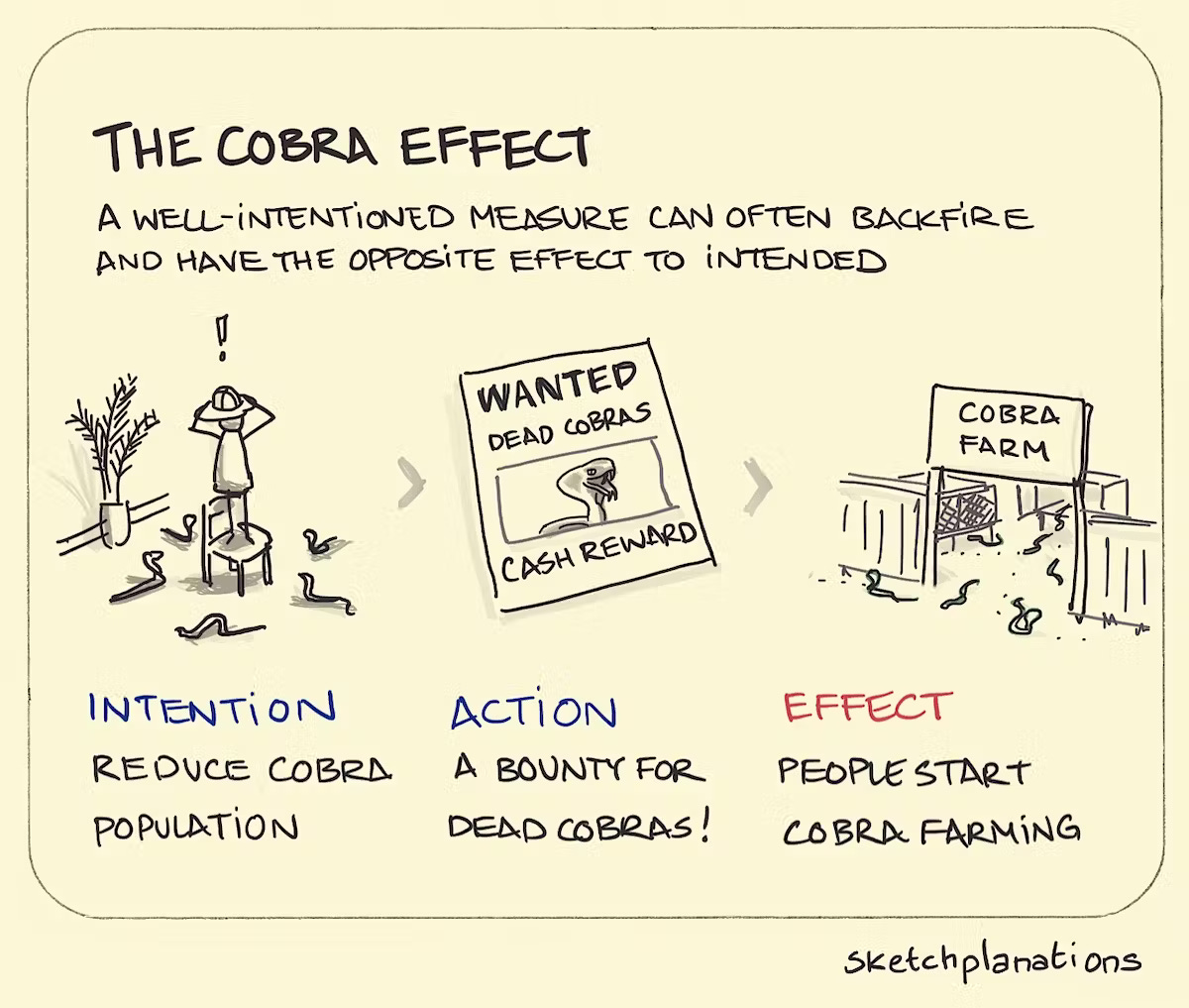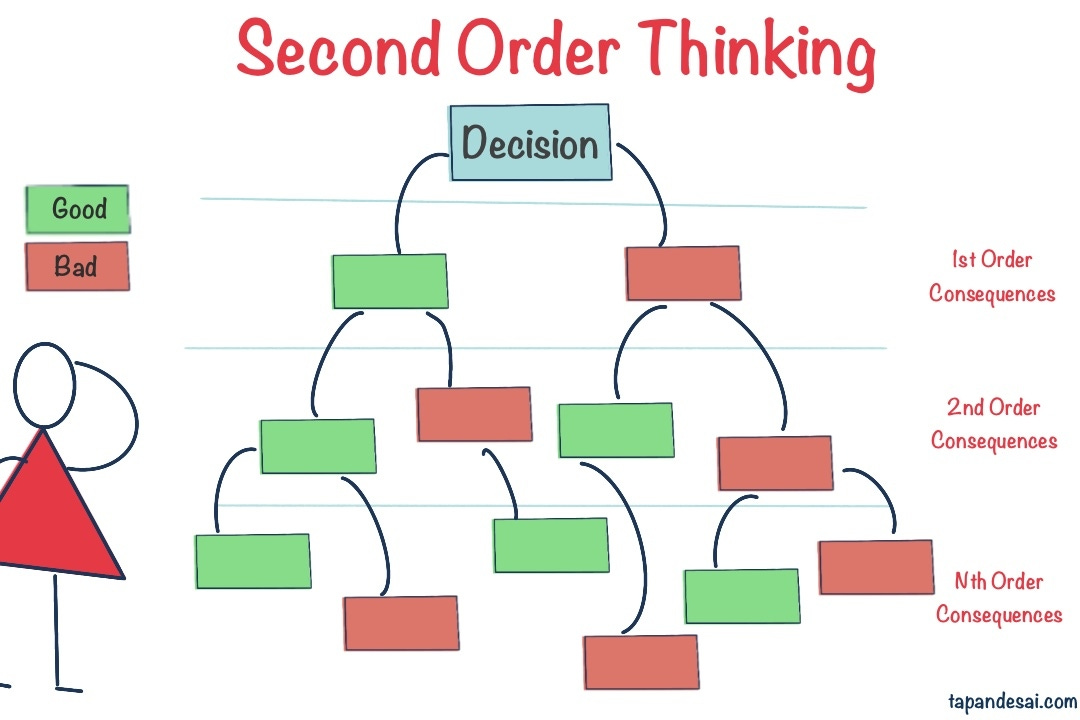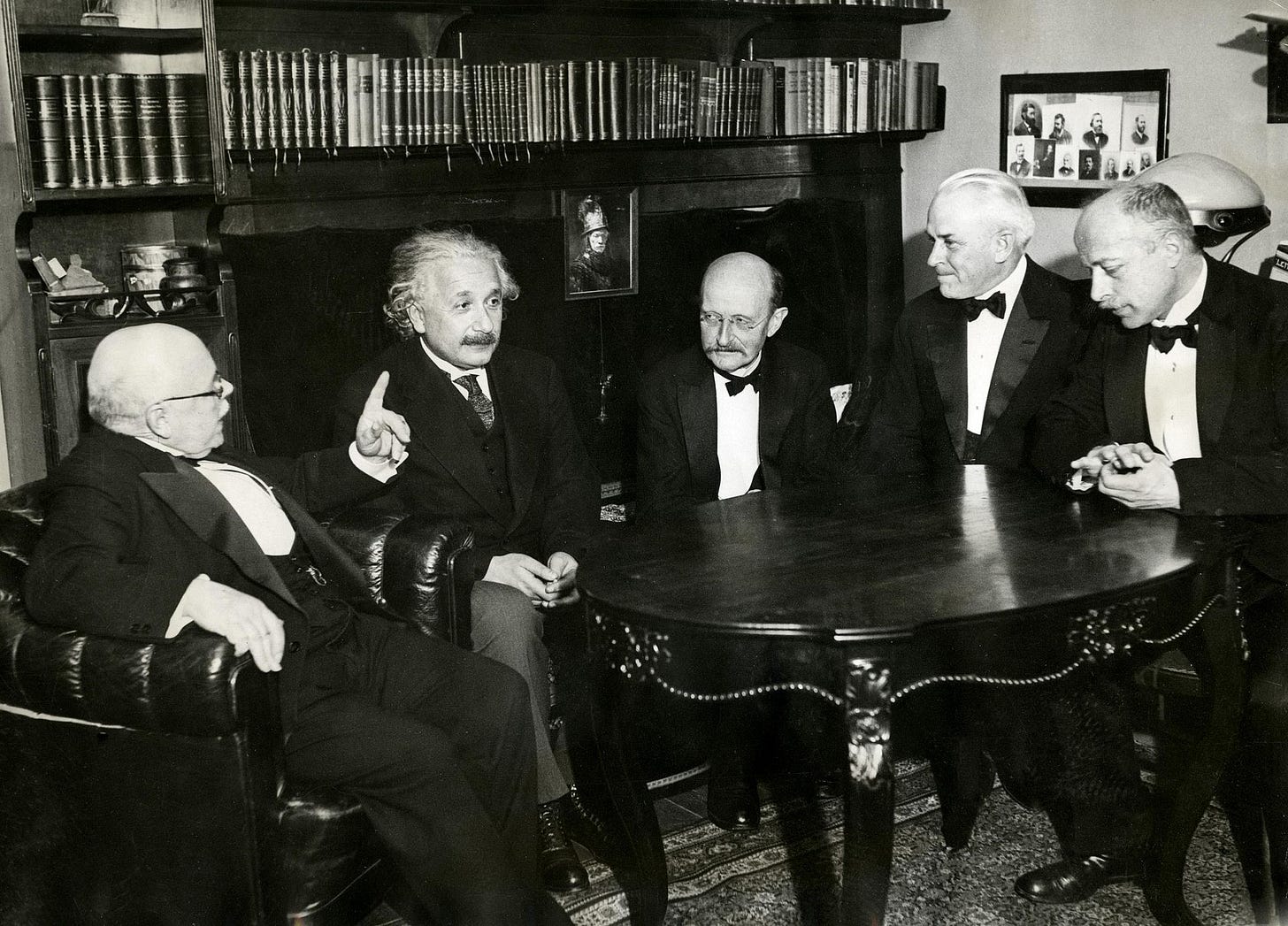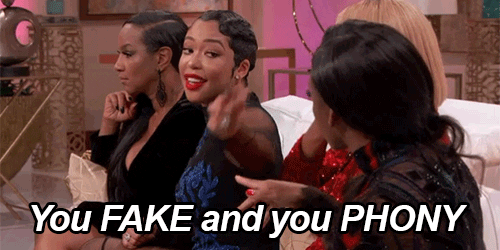Monthly Mulling💡
The Way We Think: The Scrolls Scandal & Chauffeur Knowledge
Hi👋 Tapan here.
Monthly Mulling is a 2x monthly newsletter with 3 timeless ideas to help you make better decisions in your life and career. Join now👇🏽
Note: If my emails end up in the ‘promotions’ tab, please move them to the inbox so you don’t miss out.
Happy Sunday y’all!
Work has been a bit chaotic so recently, I’ve spent less time writing. But last weekend I was able to squeeze a quick break to Amsterdam. The last time I was there, it was all snow and cold - this time, I got to see the city basking in the sun. Quite a change, right?


📖 Currently, I am reading: Jugalbandi: The BJP Before Modi by Vinay Sitapati
The book talks about the creation of Hindu nationalism as a response to British-induced elections in the 1920s, the formation of the Bharatiya Janata Party (BJP) in 1980, and the first BJP national government (1998-2004) before Modi came into power in 2014. It follows this journey through the entangled lives of its founding jugalbandi: Atal Bihari Vajpayee and Lal Krishna Advani.
📜 The Scrolls Scandal: The Role of Incentives
Rewind to 1946: A pack of goat-herding teens were hanging out near the old settlement of Qumran, nestled on the Dead Sea's northwest coast.
One of the boys, in a moment of boredom, hurled a rock into a cliff's opening and was greeted with an echo of shattering glass. Intriguing (👀).
Picture Indiana Jones, but in their ragtag Bedouin attire they dove into the cave, dusting off ancient scrolls secured in clay jars - an unexpected loot. These scrolls journeyed from the boys' hands to an antique dealer, and finally, into the custody of scholars (👨🏻🏫).
News travelled fast. The promise of rewards led to a "scroll rush" among the local treasure hunters.
💥 The archaeologists wanted more and they put out a bounty - the more scroll fragments you find, the bigger the reward.
The result? The fragments were deliberately torn into smaller pieces, inflating their quantity for more rewards but causing invaluable damage for archaeologists (🤦🏽♂️).
The Bedouin boys' actions demonstrate how incentives can manipulate our behaviour.
People do what they perceive is in their best interest and are biased by incentives. This means that we have to recognize self-interested behaviours in others.
Never ask the village barber if you need a haircut.
🤔 Where else have you seen bad incentives backfire?
🐍 The Dead Sea Scroll anecdote is similar to the now-famous Cobra Effect story.

📦 Amazon’s hire-to-fire practice where managers were allegedly hiring employees they planned to fire in order to meet their turnover targets.
🏦 Wells Fargo employees opened millions of fake accounts to hit their new account opening targets.
🐀 More recently, NYC appointed a ‘rat czar’ to exterminate rodents in the city. You tell me - if your compensation is based on terminating rats, would you actually terminate all of them?
Show me the incentive and I will show you the outcome.
— Charlie Munger
💡 What can you do?
👀 When dealing with those who have something to gain from your decisions, remember to be a little sceptical. Ask yourself: Who's the real winner here?
🤔 To use incentives effectively, play detective. What motivates people? Money, status, love, reputation, power, or envy? Use this knowledge wisely when rewarding.
📐 Measure your incentives. Pick meaningful metrics over easy-to-calculate ones. Be wary of Goodhart’s Law though: "When a measure becomes a target, it ceases to be a good measure".
🪨 Employ second-order thinking (ripple effect) to consider the subsequent consequences of established incentives when making decisions.
Incentives are expert storytellers, able to convince you that nonsense is real, harm isn’t happening, value is being created, and whatever you’re doing is just fine.
— Morgan Housel
👨🏻✈️ The Planck's Chauffeur Phenomenon: Differentiating True Wisdom from Sham Intellect
Back in 1918, having just bagged the Nobel Prize in Physics, Max Planck was embarking on a lecture tour across Germany. His presentations centred around the fresh concept of quantum mechanics, and he would repeat the same speech at every stop.
Eventually, Planck's chauffeur, having listened to the lecture time and again, proposed a fun idea. "Professor Planck, delivering the same speech must be monotonous. How about I take the reins in Munich and deliver the speech?"
Planck said, “Why not?”.
Dressed to the nines as Planck, the chauffeur amused the audience with an articulate lecture on quantum mechanics, with the real Planck sitting nonchalantly in the first row, donning his chauffeur's hat (👨🏻✈️).
After the speech, another physics professor stood up and asked a perfectly interesting question. The chauffeur pretending to be Max Planck said, “Well I’m surprised that in an advanced city like Munich, I get such an elementary question. I’m going to ask my chauffeur to reply.”
I am unsure if this really happened but the point of the story is not the quick-wittedness of the protagonist, but rather — to echo Richard Feynman — it’s about making a distinction between knowing the name of something and knowing something.
There are two types of knowledge:
🧠 Real knowledge: This can't be bought off a shelf or copied. It's the fruit of earnest, relentless effort. It is a mark of individuals who have dedicated substantial time and sweat to comprehend a subject.
👨🏻✈️ Chauffeur knowledge: This is memorized or mimicked knowledge that lacks genuine understanding. It's an act, an impression of wisdom without substance.
True experts recognise the limits of their knowledge and admit when they don't know something.
So, you have to beware of people of chauffeur knowledge; don't confuse showmanship with genuine expertise. The brilliant Richard Feynman had a name for them: pompous fools (🤡).
Ordinary fools are all right; you can talk to them, and try to help them out. But pompous fools - guys who are fools and are covering it all over and impressing people as to how wonderful they are with all this hocus pocus – THAT I CANNOT STAND!
— Richard Feynman
🎓 Navigating the River of Life: Lessons from Mark Rober's Inspirational MIT Address
Recently, one of my favourite YouTubers, Mark Rober, delivered a commencement speech at MIT. Though aimed at the graduating class, I believe everyone could draw something meaningful from his words. Do check out the full speech. But for now, let's distil it down to three key points:
🥹 Practice naive optimism: Imagine life as a series of stepping stones across a river. You eye the path ahead, choosing the stone that seems best at the moment. But sooner or later, you'll have to make the leap of faith, deciding your next step mid-air, like a lion tracker navigating the wild.
On the trail there is not one way; the only mistake is to not make any choice. As it is in life.
— Boyd Varty
😓 Frame your failures: Continuing the metaphor of crossing the river, there will be times when you stumble and fall into the water. But don't forget, you don't start over from the river bank; you begin again from the stone you tripped on. Every decision you make is an opportunity to learn, even the ones that lead to failure.
💜 Foster meaningful relationships: As we age, it becomes increasingly challenging to forge new friendships and keep old ones alive. In a world growing increasingly isolated, Mark urges us to actively seek out and nurture strong bonds with others. Assume good intentions, keep a positive perspective, and invest in connections. I touched on this theme in my article on managing friendships in your 30s.
We would be boys forever, but we were not boys anymore. Each of us had gone down a different path, to a different place, and we were no longer a central part of one another’s ecosystem. And that was okay. That was life.
— Billy Baker
Thanks for reading 🙏🏽 Do you think any of your friends or family will like Monthly Mulling like you? Please share!😇
If you have any comments, you can connect with me on Twitter or reply to this email!









